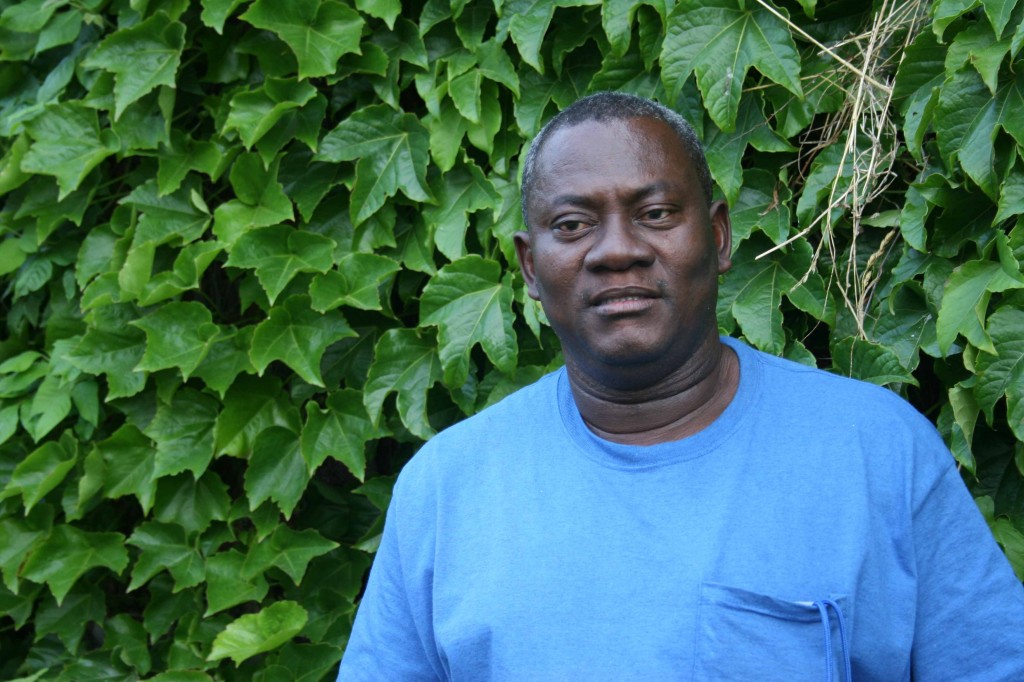Liberia is country of complexity and turmoil in which 85 percent of the population of 3.7 million people live under the international poverty line. Colonized in 1820 by freed blacks from the United States, Liberia has suffered two back-to-back civil wars that have left the country politically unstable and economically bereft.
It is in this context that Maxim Kumeh has devoted his life’s work to training peacebuilders and restoring civil liberties. Kumeh is the recipient of a scholarship to attend two sessions of the 2013 Summer Peacebuilding Institute at Eastern Mennonite University.
After working for many years for the West Africa Network for Peacebuilding, Kumeh founded his own organization called Initiative for Positive Change. It focuses on peacebuilding, monitoring Liberia’s official Poverty Reduction Strategy, and training community leaders. In addition to training staff, one of Kumeh’s biggest challenges is to keep the organization going by securing donations and contracts with funders.
Kumeh says Initiative for Positive Change needs long-term contracts – that is, longer than six to 12 months – to be able to focus strategically on the work it needs to do as a Liberia-rooted NGO and not to lose staff to better-paying international NGOs. “We are active civil-society activists,” says Kumeh. “We look at those left out of the government programs” and lobby on their behalf.
For instance, Initiative for Positive Change is part of the Liberian coalition affiliated with Publish What You Pay (PWYP), a global network of civil society organizations calling for an open and accountable extractive sector, so that oil, gas and mining revenues improve the lives of women, men and youth in resource-rich countries. Oftentimes, Kumeh explained, when iron ore, timber, diamonds, gold and tin are being extracted, nearby communities do not receive social benefits from the enterprise.
“When I go back [to Liberia], I think I can make more of a contribution to what we are already doing,” Kumeh says. Through SPI he says that he learned how to make his organization healthier and stronger, making it more sustainable over the long term. He has also learned how to make its work conflict-sensitive and how addressing trauma resulting from years of warfare is a necessary part of rebuilding the country.
We “fought a 14-year war but have never been through any reconciliation process,” he says. Ultimately he hopes that by spreading leadership and peacebuilding skills, Liberian communities will be able to take community development issues into their own hands and mitigate their own conflicts.
The scholarship granted Kumeh was courtesy of an anonymous donor, who specified that preference should be given to a peacebuilder from West Africa. The scholarship covered all of the expenses for two courses, international airfare and domestic transport from airport to SPI, visa-related expenses, lodging in a shared bedroom for two courses, training/materials fees for these courses, and a per diem to pay for food and incidental expenses for the time enrolled at SPI. It was one of five scholarships awarded in 2013, ranging from $500 to all-expenses-paid for three sessions.
“There are so many amazing scholarship applicants each year. It is always a difficult decision for our selection committee to choose which persons will receive our limited number of scholarships,” says William Goldberg, SPI co-director. “I hope that one day we will have the funds to give scholarships to all of our applicants who cannot otherwise get to SPI.”
